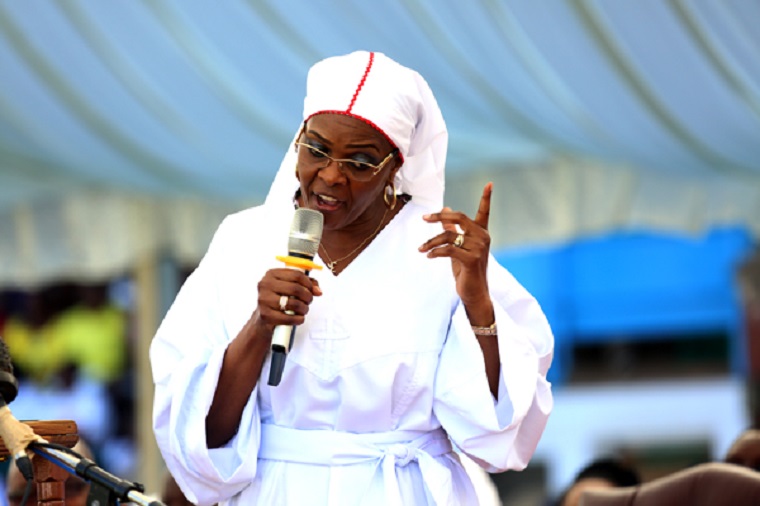She used the rallies to attack not just members of the opposition but more importantly members of the competing faction which was headed by current President Emmerson Mnangagwa. Her outbreaks were far from diplomatic, they were blunt, scathing and contemptuous.
It was around the time of the countrywide interface rallies that the name Amai was gradually replaced by the tag of hure. Academic and writer Rudo Mudiwa in the article On Grace Mugabe: coups, phalluses, and what is being defended, explains how Grace came to be called hure and shows how the name was linked to the November 2017 “coup that was not a coup”:
Grace, already branded a harlot, was considered a threat to the nation-state on the basis that she was improperly influencing Mugabe, weaponising their pillow talk to sway a senile old man. Her speeches, nakedly ambitious, only seemed to confirm that it was she who was in power in Harare. The phallus had been deposed.
The hure label was used because Grace had subverted the image of the domesticated first lady who was not interested in politics. In Mudiwa’s argument, the soft coup that overthrew Mugabe was actually a defence of patriarchy and a counter attack against the anxieties that Grace was causing men in politics.
The military intervention could thus be read as the protection of male dominance which had been challenged by a woman who had left behind her decorative role as a silent, domesticated and thus respectable woman.
Grace Mugabe’s short stint in politics has shown that women are far from being afforded a place in Zimbabwean politics.
Sexist and misogynistic slurs such as hure point to how women continue to be sexualised and objectified. The treatment of women in politics is no different from how women in general are regarded in the country, because their competencies are often disregarded or unnoticed. Emphasis is placed rather on their bodies and sexualities.
In the few instances that women are accorded a space in politics, they are used as pawns in factional battles within political parties, as Grace was.
When she attacked other women politicians like former Vice President Joice Mujuru, she was not considered dangerous. However, when her verbal attacks targeted men like Mnangagwa she was deemed to be treading treacherously.
When the coup that toppled Mugabe was in progress, the men in the Generation 40 faction clandestinely left the country, leaving Grace alone to deal with the military.
As long as safe and conducive spaces are not created for women in Zimbabwe, they will continue to be sidelined from positions of political power and authority. As Zimbabwe continues to aspire towards democracy and democratic ideals, despite the odds, more needs to be done to level the political playing field.
Women who do choose to venture into the field of politics will need to do so fully aware of the multifarious challenges that lie in wait. They will need to be strategic in their actions and how they navigate a space that is slanted heavily against them.
For as long patriarchal societies, such as Zimbabwe, do not recognise the vast potential women have as knowledgeable politicians and skilled decision-makers, an equitable society cannot be realised.
By Gibson Ncube from The Conversation
(112 VIEWS)


